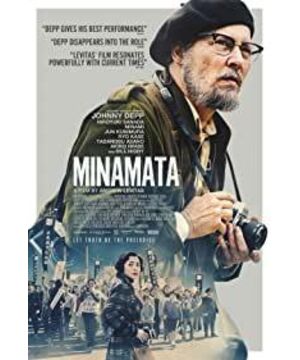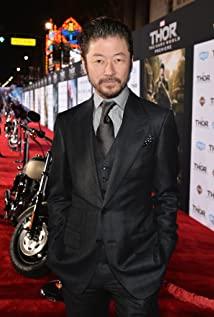Before watching "Minamata Disease", I had two concerns. First, the essence of Minamata disease is mercury poisoning, and the patient's symptoms are terrible. Can I see a movie on this subject at the end? Second, as a legend in the history of photojournalism, Eugene Smith has distinct hippie characteristics, and that kind of lifestyle once made me envious, and later made me repulse.
Luckily, the film was not up to the mark, not even a "good film" at the very least. Many times, we have to admit that making a movie full of holes constitutes an unexpected boon for audiences who love the theme of the movie itself.
Thousands of words, can not express the riddled with holes. Language has natural limitations when it comes to describing images; beyond that, describing a fraught process is heartbreaking and therefore not an option for most people, although it may be necessary.
The film's biggest flaw is that the director doesn't seem to get it: "photography" is an independent art. Especially for Eugene Smith. It is said that the script of this film is blessed by the photographer's wife (that is, the heroine in the film), and has injected many "details" of the photographer's life. But the scary thing is that the biggest detail has been neglected, that is: photographers have pleasure in the creative process. This creation is not just work, but more of an expression. The photographer's complete integration into the subject's life is a prerequisite for producing great photos. It is mutual understanding, mutual respect, and mutual penetration.
Eugene Smith drank heavily, took drugs, and was haunted by gunfire on the battlefield, but he was still obsessed with filming. In my opinion, behind him, in addition to monetary rewards, and the "social conscience" that is deliberately emphasized in the film, it is more the pleasure of creation. This thrilling feeling is the embodiment of self-realization.
Photojournalism is inherently time-sensitive. However, why do we still feel that those photos are so thrilling after decades that we even want to make a movie to commemorate the great photographer? I think, in addition to the social impact of news events themselves, the great charm generated by photographers integrating their souls into their works may be a more important element.
It is a pity that the director invested too much in telling social conflicts and simply positioned the film as a popular story of "good versus evil". Insufficient knowledge of photojournalism, the audience's perception of Eugene Smith may only stay at: 1. The starring Johnny Depp is very handsome with the camera 2. The protagonist is jealous of evil 3. Gone.
All in all, this is a running account. For those of you who haven't watched it yet, don't watch it.
View more about Minamata reviews











